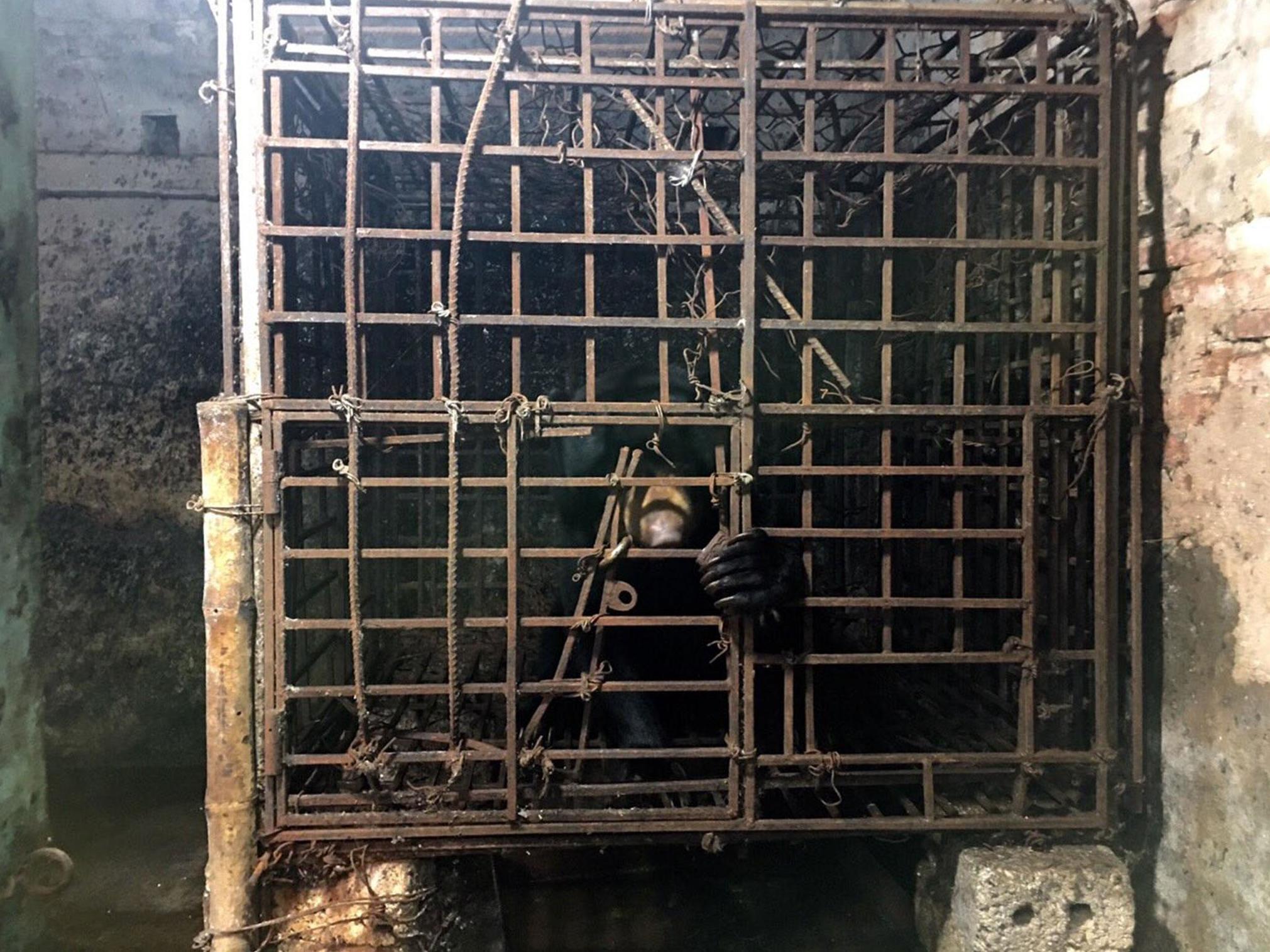This website uses cookies so that we can provide you with the best user experience possible. Cookie information is stored in your browser and performs functions such as recognising you when you return to our website and helping our team to understand which sections of the website you find most interesting and useful.

The Chinese government is touting bile extracted from caged bears as a treatment for coronavirus, which experts have branded “hugely irresponsible”.
Scientists agree that China’s wildlife trade – notably markets where species are crammed closely together – was the most likely source of the coronavirus pandemic.
But in a list of recommended treatments for Covid-19, the country’s National Health Commission promotes injections of a “traditional medicine” treatment containing bear bile.
An estimated 12,000 bears are held in captivity on farms and “milked” regularly for their bile in China and Vietnam.
According to charity Animals Asia, the cages in China are sometimes so small that the bears are unable to turn around or stand on all fours. Some are put into cages as cubs and never leave them. They may grow too large to fit through the cage door or remain stunted.
“Bears may be kept caged like this for up to 30 years. This has a terrible effect on the physical and mental wellbeing,” the group says.
The animals’ bile – a digestive fluid produced by the liver and stored in the gallbladder – is harvested through invasive surgery, which causes “severe suffering, pain and infection.”
Bear bile is an ingredient of “tan re qing”, injections of which are among recommended treatments for severe and critical coronavirus in a plan published three weeks ago, circulated by Chinese state media.
Traditional Chinese medicine practitioners typically use tan re qing to treat bronchitis but Clifford Steer, a professor at the University of Minnesota in Minneapolis, who has studied the subject, says there is no evidence that bear bile is an effective treatment for coronavirus, National Geographic reported.
Last month, the Chinese government banned the eating and transport for eating of wild animals as the coronavirus was spreading, but it did not cover use of wildlife products in Chinese medicine or as ornamental items.
Aron White, a China specialist with the Environmental Investigation Agency, said: “Restricting the eating of wildlife while promoting medicines containing wildlife parts exemplifies the mixed messages being sent by Chinese authorities on wildlife trade.
“Aside from the irony of promoting a wildlife product for treatment of a disease which the scientific community has overwhelmingly concluded originated in wildlife, the continued promotion of the use of threatened wildlife in medicine is hugely irresponsible in an era of unprecedented biodiversity loss, including illegal and unsustainable trade.”
The investigative group said that even if bear bile and tiger bone are taken from captive animals, it does not relieve pressure on endangered wild populations, as such legal markets fuel demand for threatened wildlife.
“At this moment in history, as the world is crippled by the coronavirus pandemic, there could be no better time to end the use of the parts of threatened wildlife in medicine, especially as recent surveys conducted in China showed the vast majority of respondents were opposed to use of wildlife in medicine.”
At bear bile farms in China and across southeast Asia, neglect and disease are common, according to Animals Asia, which states: “Most farmed bears are starved, dehydrated and suffering from multiple diseases and malignant tumours that not only contaminate their bile but ultimately kill them.”
The group says it has also seen old or very sick bears – those that fail to produce bile – simply left to starve to death in their cages.
“Pathology reports have shown that bile from sick bears is often contaminated with blood, pus, faeces, urine, bacteria and cancer cells,” it says.
Earlier this year, illegal wildlife traders in China and Laos were found to be cashing in on fears over the coronavirus outbreak in China by peddling fake cures containing rhino horn and other endangered species products.
In 2016, Chinese law was amended to further legitimise the commercial use of wildlife, asserting that animals may be used for traditional Chinese medicine.



 Africana55 Radio
Africana55 Radio 

